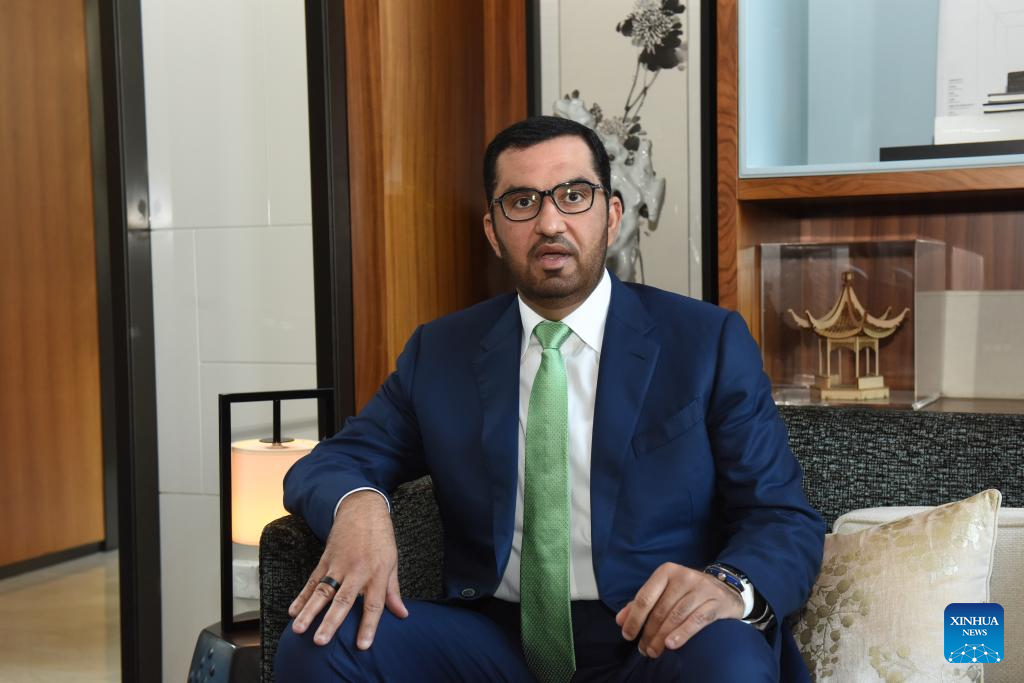
COP28 President-Designate Sultan Ahmed Al Jaber speaks during an interview in Beijing, capital of China, Oct. 16, 2023. Ahead of the 28th session of the Conference of the Parties (COP28) to the United Nations Framework Convention on Climate Change, COP28 President-Designate Sultan Ahmed Al Jaber called for a fairer deal on climate financing for the Global South. (Xinhua/Li Liangyong)
BEIJING, Oct. 30 (Xinhua) -- Ahead of the 28th session of the Conference of the Parties (COP28) to the United Nations Framework Convention on Climate Change, COP28 President-Designate Sultan Ahmed Al Jaber called for a fairer deal on climate financing for the Global South.
"The entire international financial system must be modernized to make climate finance more available, accessible and affordable to the Global South," Al Jaber said in a recent interview with Xinhua.
COP28 is scheduled to be held in Dubai, the United Arab Emirates (UAE), from Nov. 30 to Dec. 12.
Al Jaber, also UAE minister of industry and advanced technology, said the COP28 Presidency is focused on delivering an inclusive process that brings everyone together to take concrete steps to address climate change and meet the ambitions set out in the 2015 Paris Agreement.
The COP28 Presidency has developed its Action Plan with four key pillars: fast-tracking a just and orderly energy transition, fixing climate finance, focusing on people, nature, lives and livelihoods, and underpinning everything with full inclusivity, according to Al Jaber.
"It is our belief that all stakeholders must be heard to reach a consensus," he said. "We want everyone who comes to COP28 to come with a mindset of positivity, hope, action and solidarity to translate the Paris Agreement into a practical plan and realistic roadmap that the whole world can follow."
Speaking of China's role in the global fight against climate change, Al Jaber said China is a global leader in renewable energy expansion and is the powerhouse that has the ability to triple renewable power generation globally. "China is key in the decarbonization of the energy we use today," he said.
According to his observation, 56 percent of China's overseas energy investment in participating countries of the China-proposed Belt and Road Initiative (BRI) in the first half of 2023 went into renewable energy such as solar, wind, or hydropower projects.
In practice, China's endeavor in the BRI has shifted to supporting the green economy: not only did energy-related investments become greener, but Chinese companies significantly expanded interests in metals related to the energy transition, such as lithium, and invested in manufacturing in green industries, such as batteries, Al-Jaber added.
More than three-quarters of the world's solar panels, around 60 percent of the world's wind turbines, and three-quarters of the lithium-ion batteries on this planet come from China. "China is not just making what the world needs for the energy transition, its industrial strength is also driving down costs for every nation," he said.
"The UAE and China maintain a robust partnership, and I am confident that this will continue to grow and strengthen," Al Jaber said. "In practical terms, China and the UAE can work together to boost innovation in high-end, cross-cutting technologies." ■



